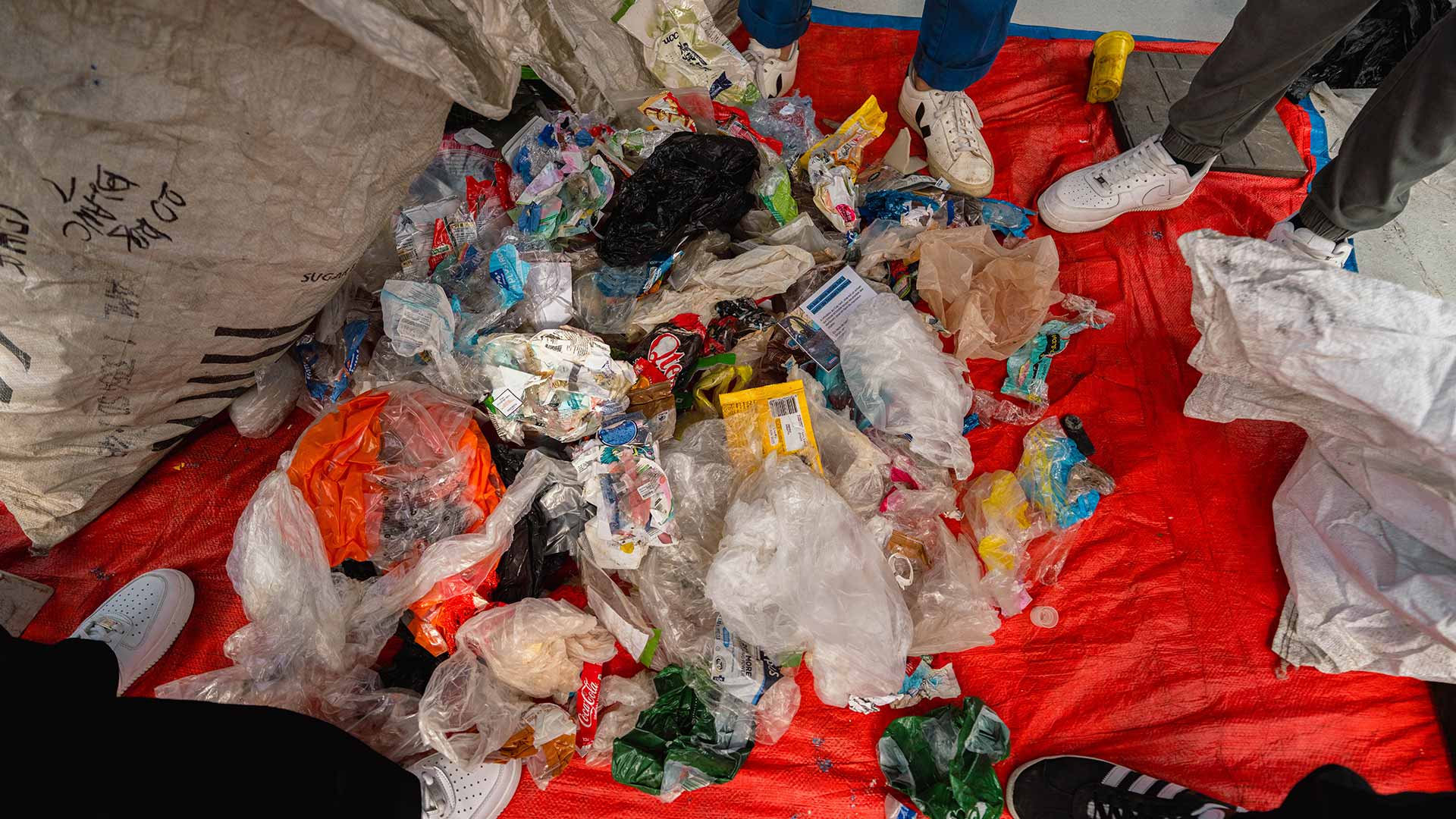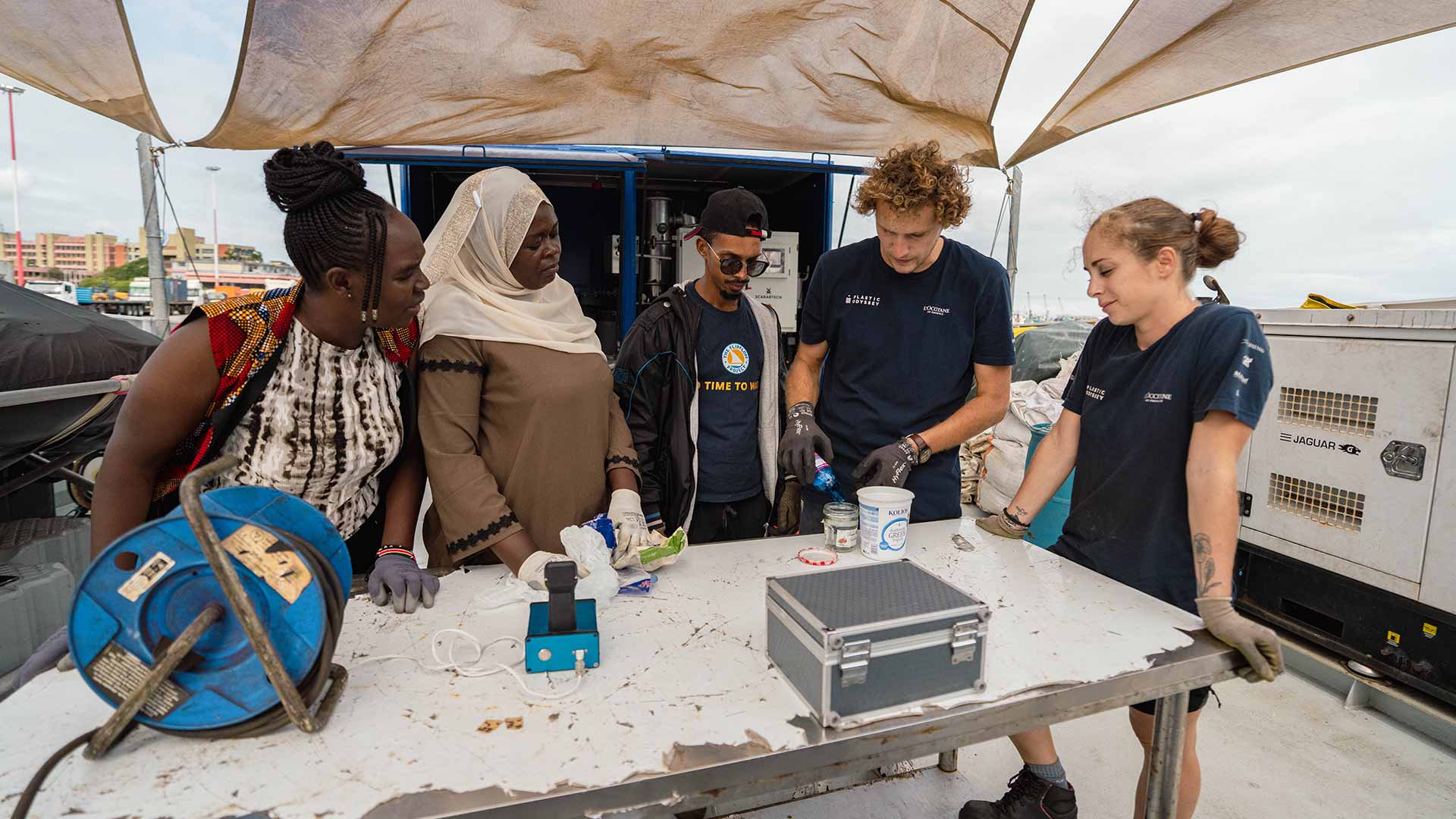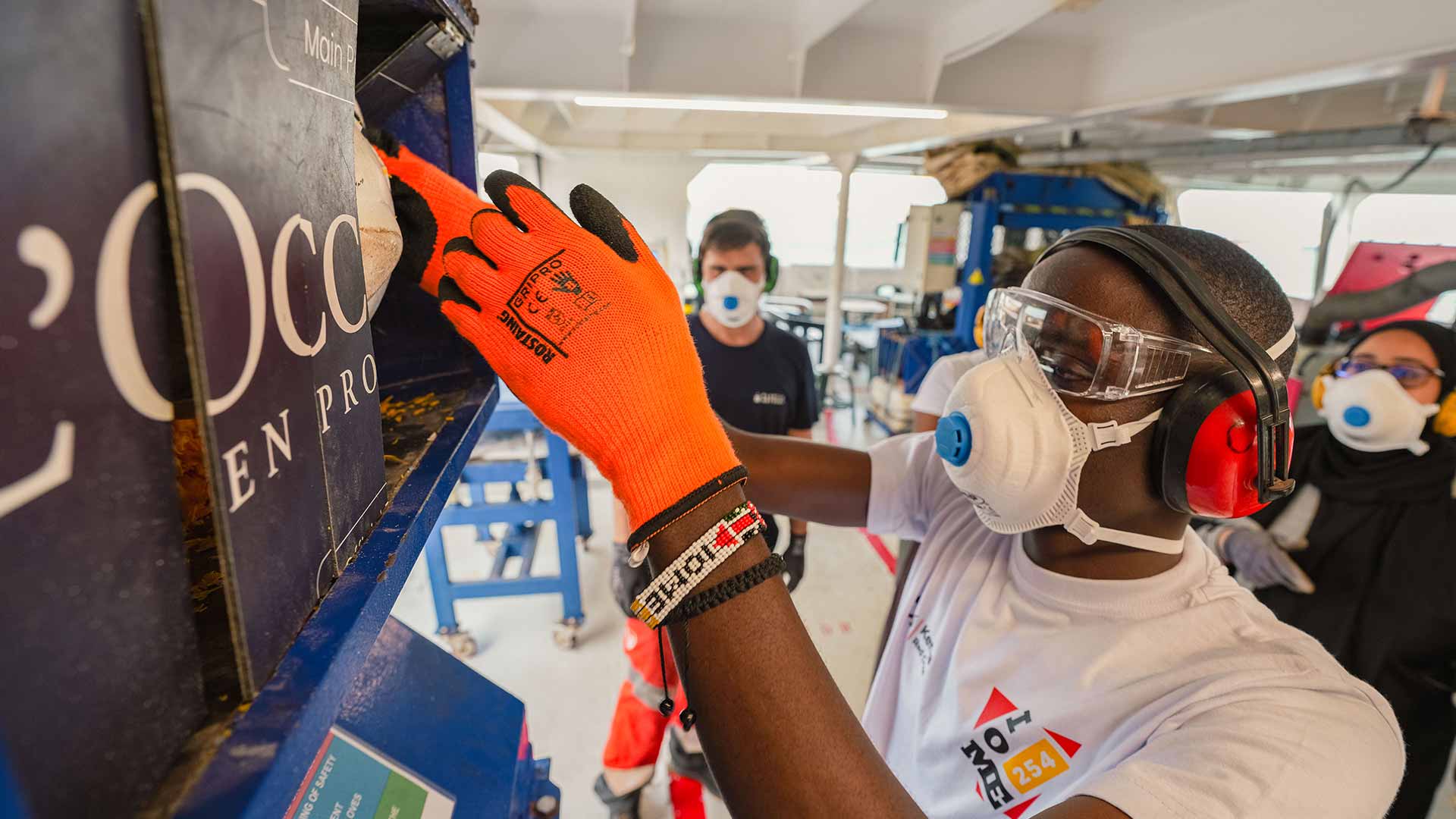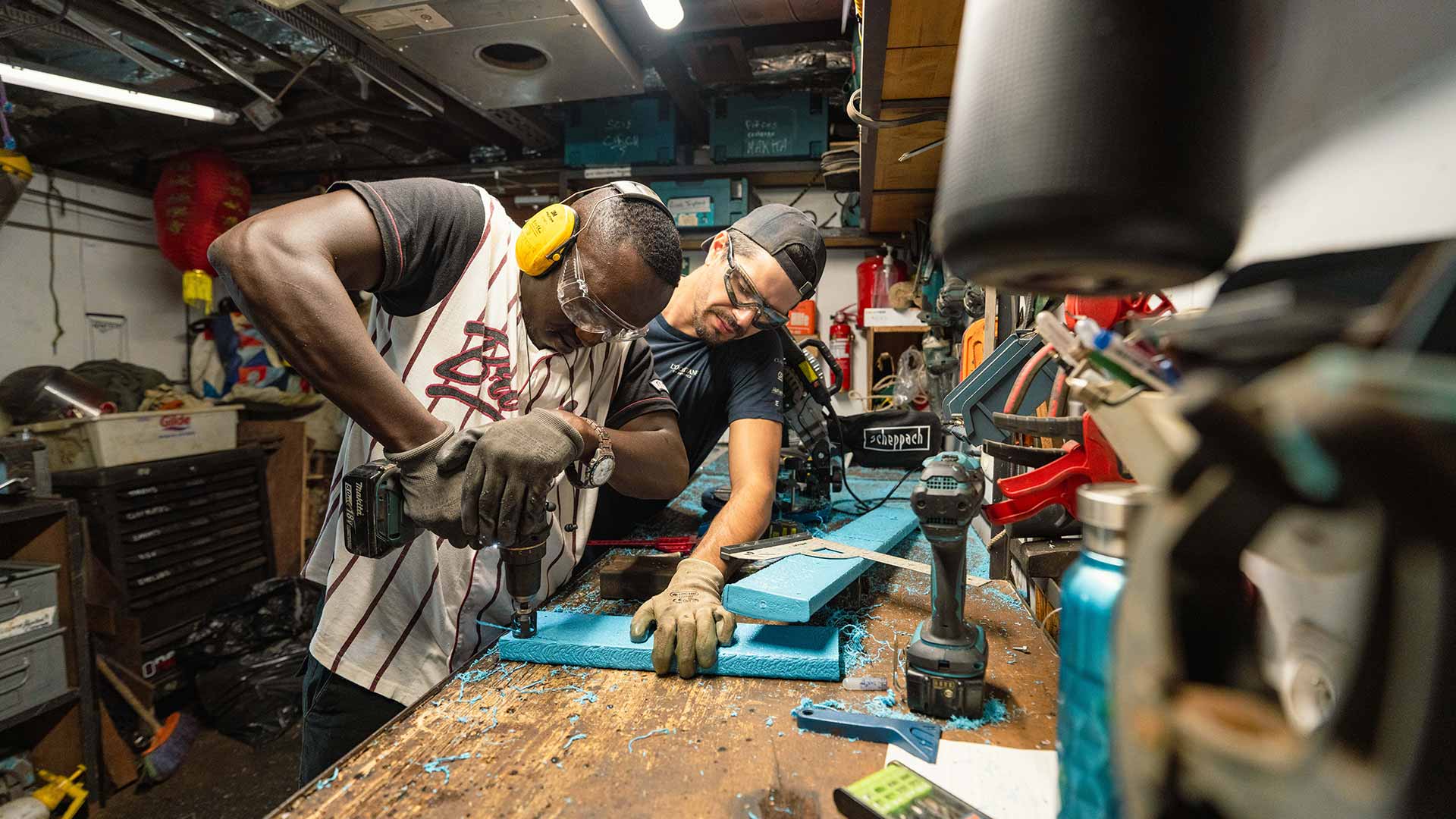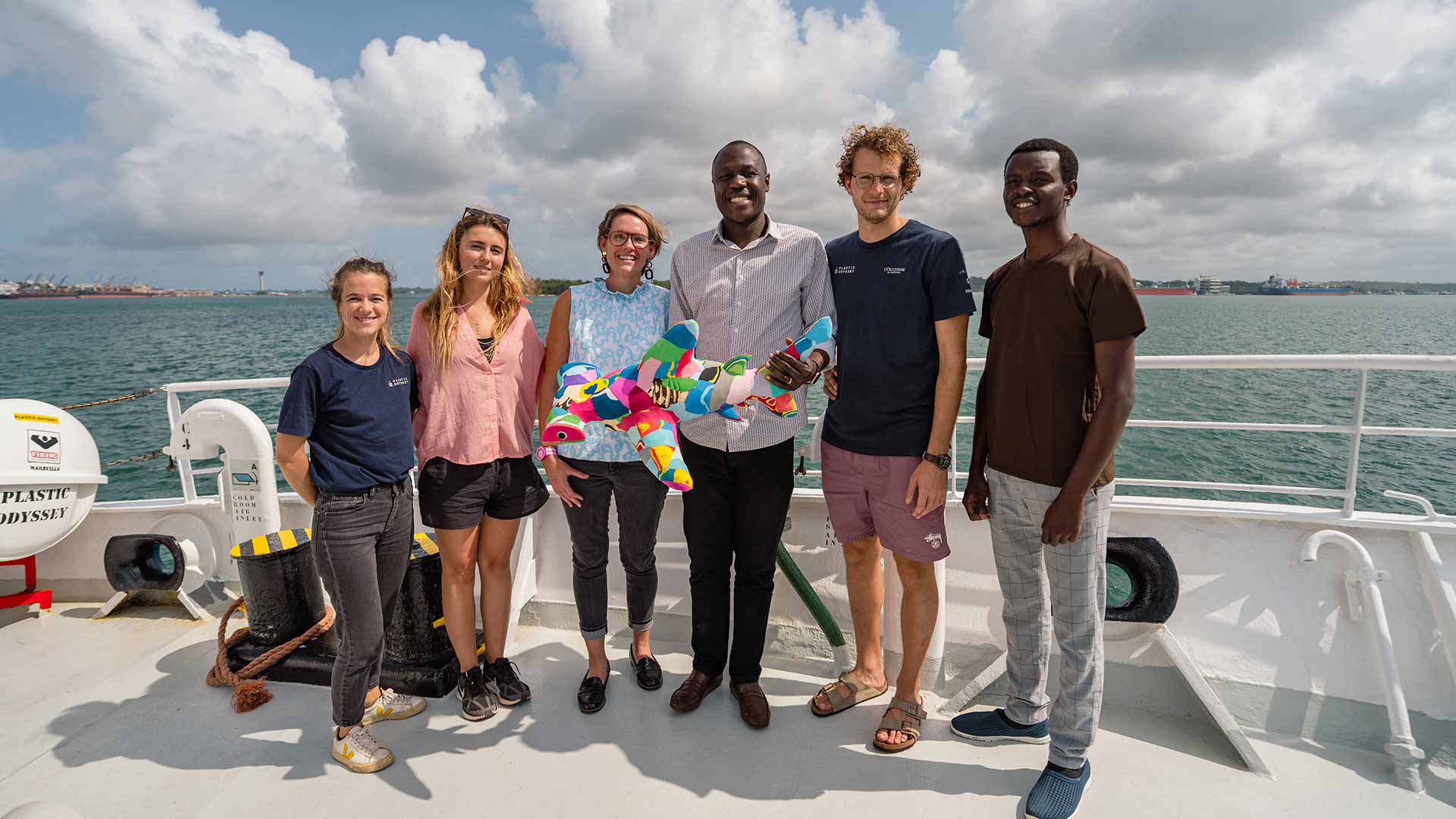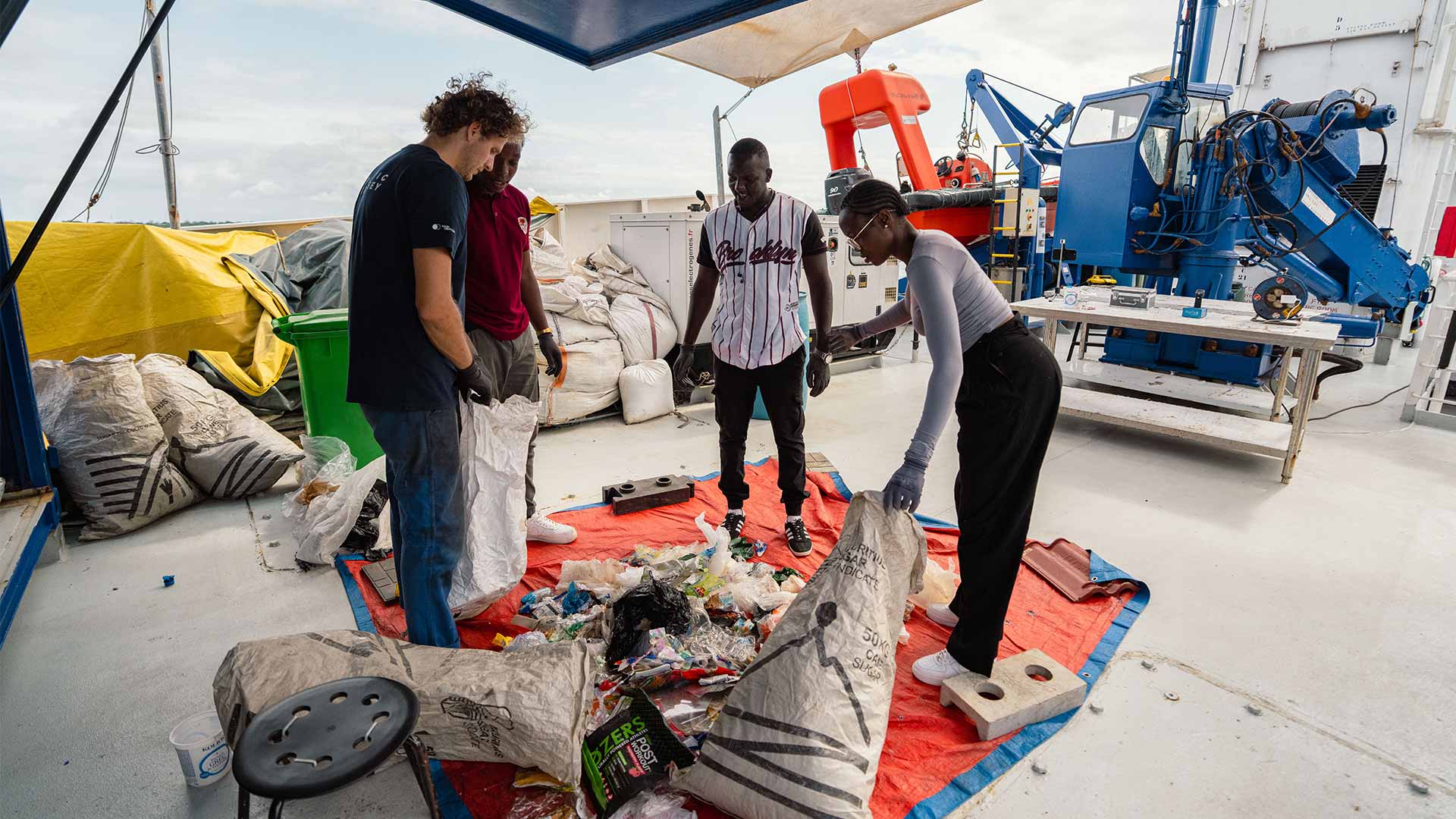
Kenya: entrepreneurs committed to tackling plastic pollution
In Kenya, plastic recycling is still limited and largely dominated by a few large private players. However, civil society is very active: numerous community initiatives are emerging, often led by young people and women, to address the challenges of pollution and social inclusion. The OnBoard Lab enabled these stakeholders to meet, strengthen their network, and learn about technical solutions for promoting their products.
30th edition of the OnBoard Laboratory – Mombasa, September 2025
The 30th OnBoard Laboratory was held from Monday, September 15 to Thursday, September 18 in Mombasa, on the Kenyan coast. The session brought together around ten entrepreneurs and project leaders from Nairobi, Mombasa, and other parts of the country.
Presentation of entrepreneurs and initiatives
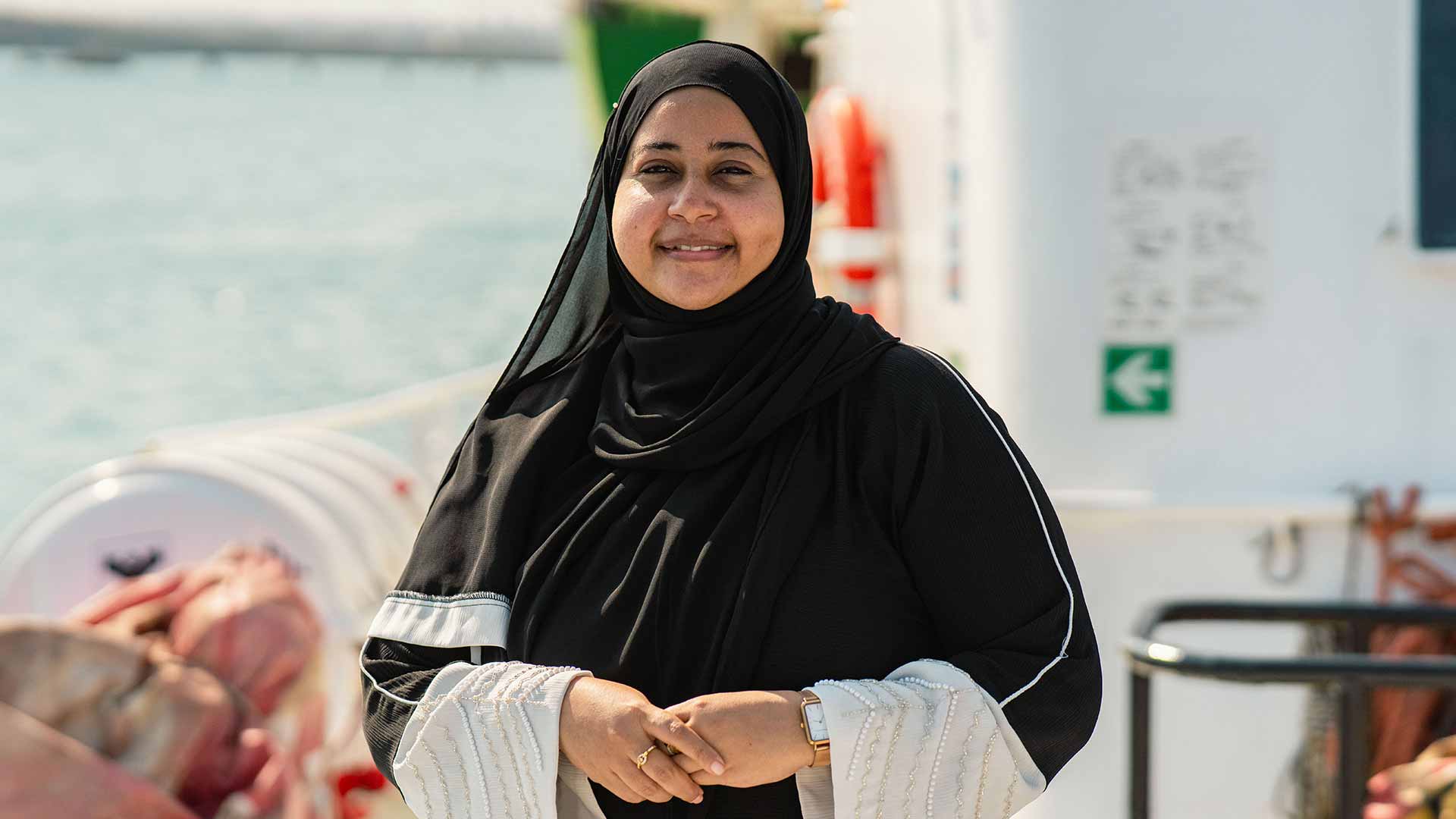
Tayba Hatimy – Baus Taka Enterprise
Trained as a dentist, Tayba Hatimy decided in 2021 to take on waste management by launching Baus Taka Enterprise in Mombasa. Her initial idea: to develop an app that directly connects residents to collection services to reduce illegal dumping. The company thus combines technology with community mobilization, regularly organizing clean-up operations.
To strengthen awareness, Baus Taka also installed “educational containers” in several neighborhoods across the city. These spaces serve as drop-off points, training centers, and one even includes a small workshop equipped with Precious Plastic machines. Today, more than 2,100 users are registered on the app, and the company collects nearly 10 tons of waste every month. The all-women team generates revenue from several activities: collection subscriptions, on-demand pickups via the app, awareness workshops in private schools, and resale of collected plastics. In practice, rigid plastic waste is bought from residents at 30 KSh per kilo (≈ 0.23 USD), then resold to recyclers at 50 KSh per kilo (≈ 0.38 USD).
Initially self-funded, the project has since received several major forms of support: a USD 330,000 grant under the Afri-Plastics Challenge, backing from the Ikea Foundation, and in 2024, USD 15,000 in funding from GIZ to expand the technology to eight other East African countries.
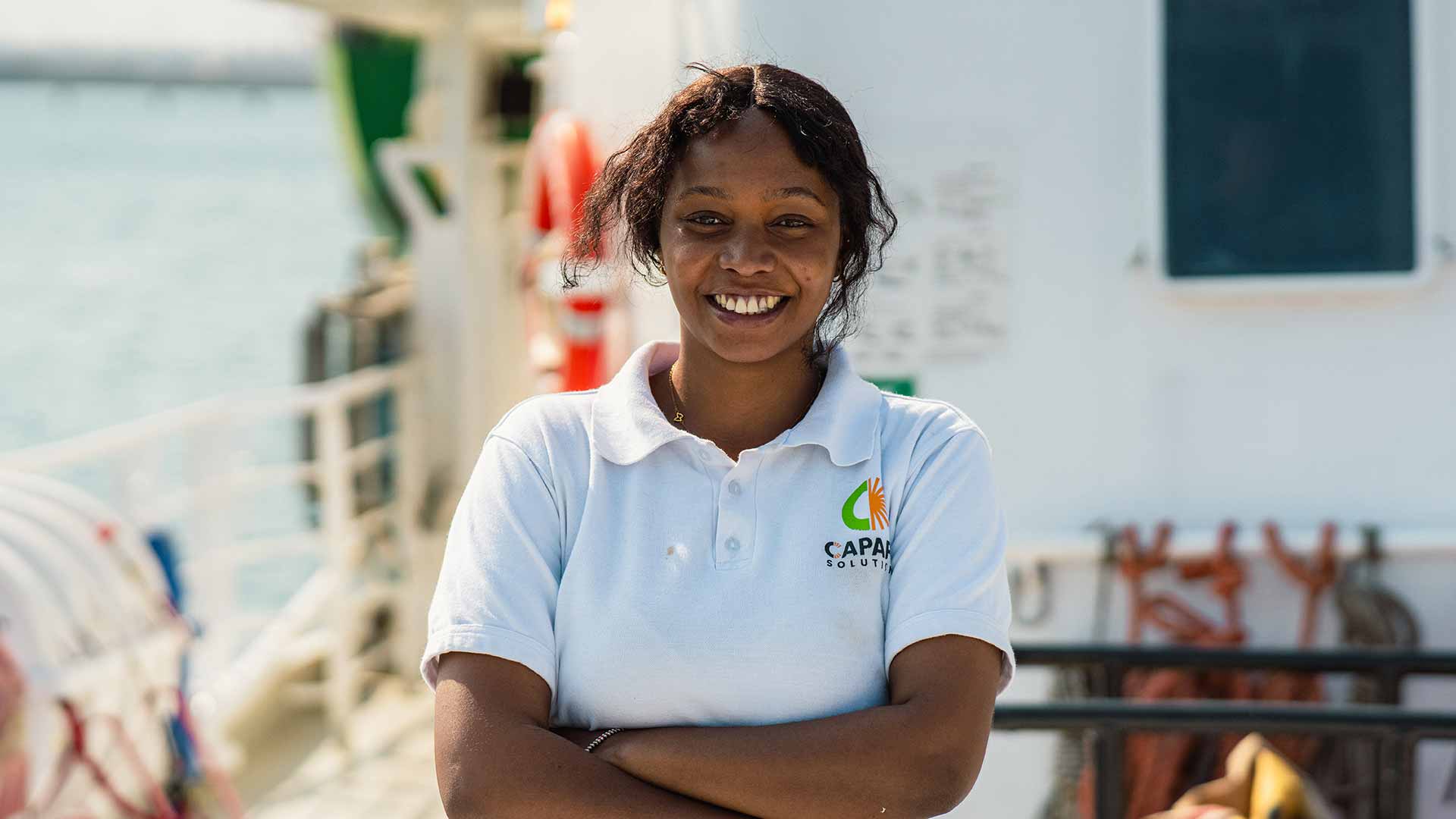
Mercy Mnyaka – Capapo Solutions
Trained as an interior designer, Mercy co-founded Capapo Solutions in 2023 following a competition organized by USAID. Based in Mombasa, the company operates a buy-back center where plastics are baled and then resold either to local recyclers such as Mr. Green or for export, particularly PET. Capapo works closely with several community partners, including Life Groove CBO, which supports the company in collecting and sorting plastics.
Beyond trading, Capapo is developing a line of eco-souvenirs for tourists and socially responsible businesses. These items—such as keychains and small decorative pieces—are produced in partnership with Plastik Rafiki in Nairobi. To date, more than 900 pieces have been sold. The company, which employs 15 people, is also working on the development of recycled plastic furniture and the resale of plastic profiles, in collaboration with other local partners.
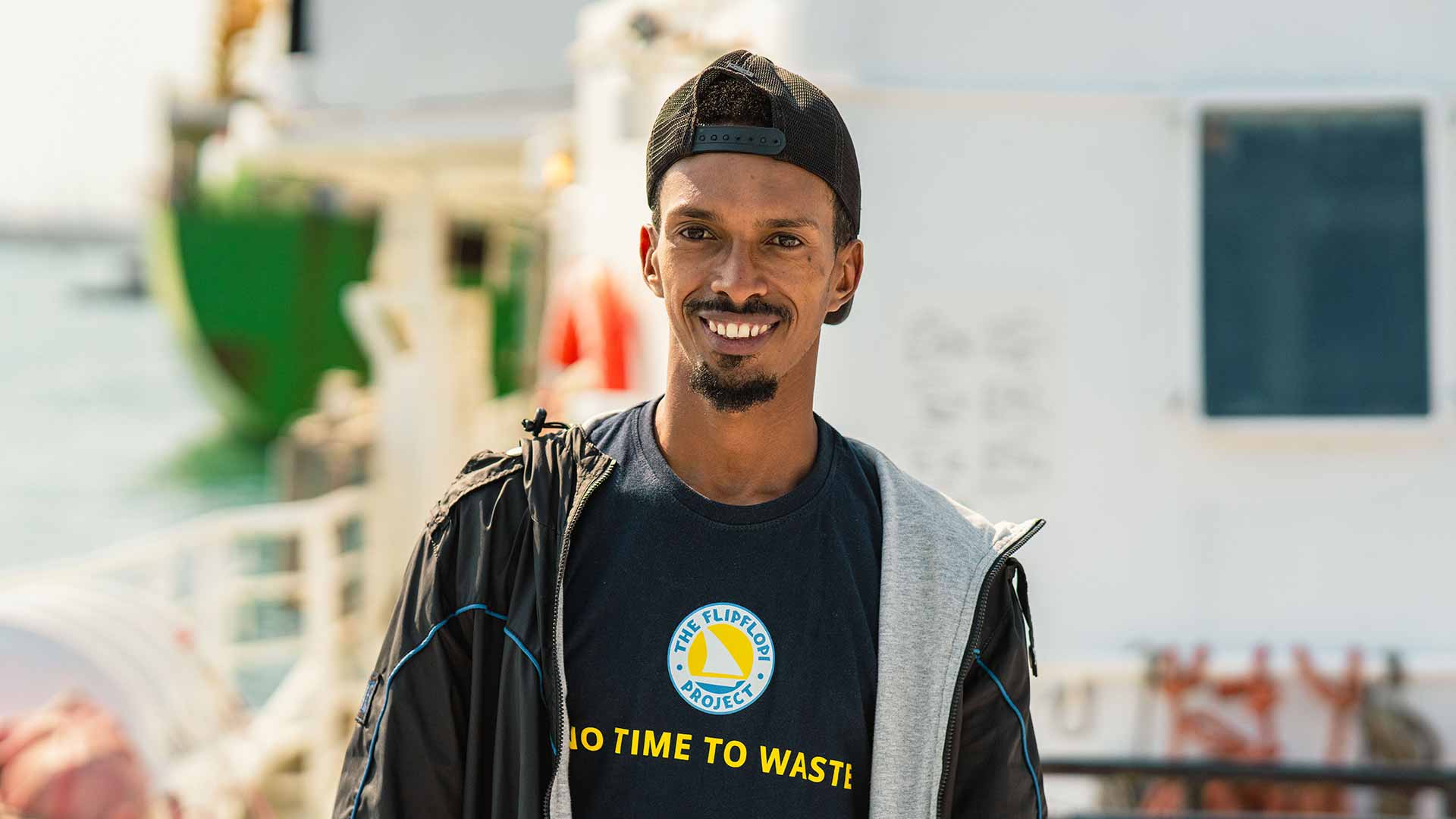
Hassan Twaha Shariff – The Flipflopi Project
Trained as an electrician, Hassan joined The Flipflopi Project in 2023. After starting out as a volunteer and later a boatbuilder, he is now Head of R&D within the organization.
Founded in 2015, Flipflopi gained international recognition in 2019 with a 500 km voyage from Lamu to Zanzibar aboard a 9-meter dhow built with 10 tons of recycled plastic and thousands of flip-flops. Having become a global symbol against single-use plastics, the project has since led other expeditions and artisanal training programs.
Today, Flipflopi goes far beyond boatbuilding. The organization (30 staff members) manages in Lamu:
- a collection center (10 tons/month) and a semi-industrial workshop (300 kg/day),
- production of high-end furniture made from recycled HDPE planks, mostly sold to Western clients,
- training cycles with Precious Plastic machines, along with open-source sharing of its innovations.
Thanks to this system, plastic waste buried in Lamu’s dumpsite has been reduced by 70%. Supported by a few international partners and a plastic credit scheme, the initiative is now aiming for economic viability and expansion to other coastal villages.
Looking ahead, Flipflopi is preparing a 24-meter dhow made of recycled plastic and plans to transform Lamu into an international training hub for remote coastal communities.
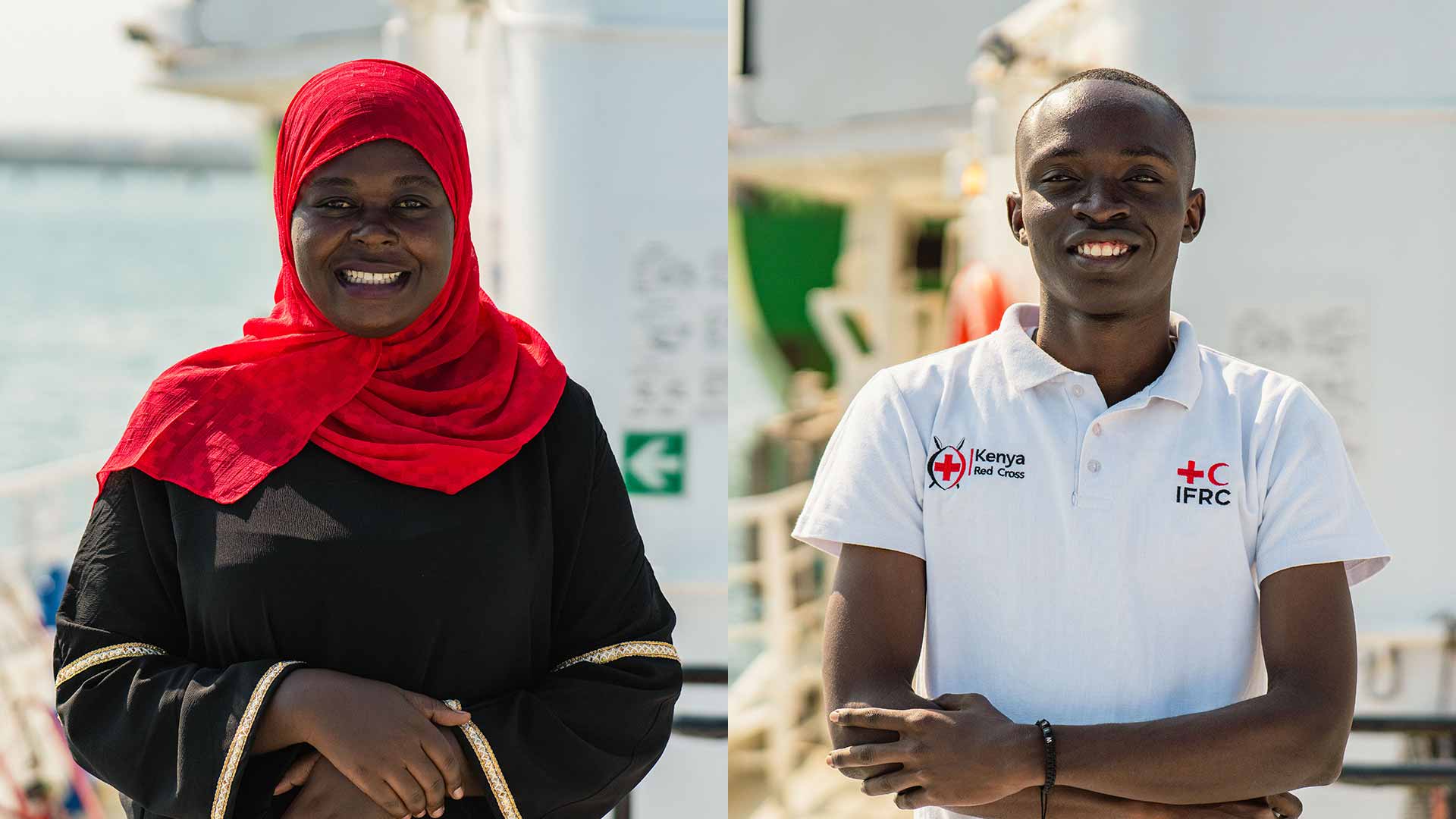
Mike Odhilambo & Nadhifa Jama – I.O.Me254 Innovation Fab Lab
Born in 2020 in Mombasa, the Kenyan Red Cross FabLab fosters local innovation through four branches. Mike, a mechanical engineer, coordinates prototyping and training activities around plastic recycling, thanks to a fully equipped demonstration-scale workshop inspired by Precious Plastic (shredding, extrusion, injection, sheet press). The team has notably developed prototypes for transforming expired medical masks into recycled sheets.
The machines are used primarily for educational and demonstration purposes, to raise awareness and support project developers. In parallel, Nadhifa Jama coordinates the Women Social Entrepreneurship Institute incubator, which supports around twenty women entrepreneurs in each cohort. The program, focused on solutions to plastic pollution, combines weekly workshops with direct access to the FabLab’s tools.
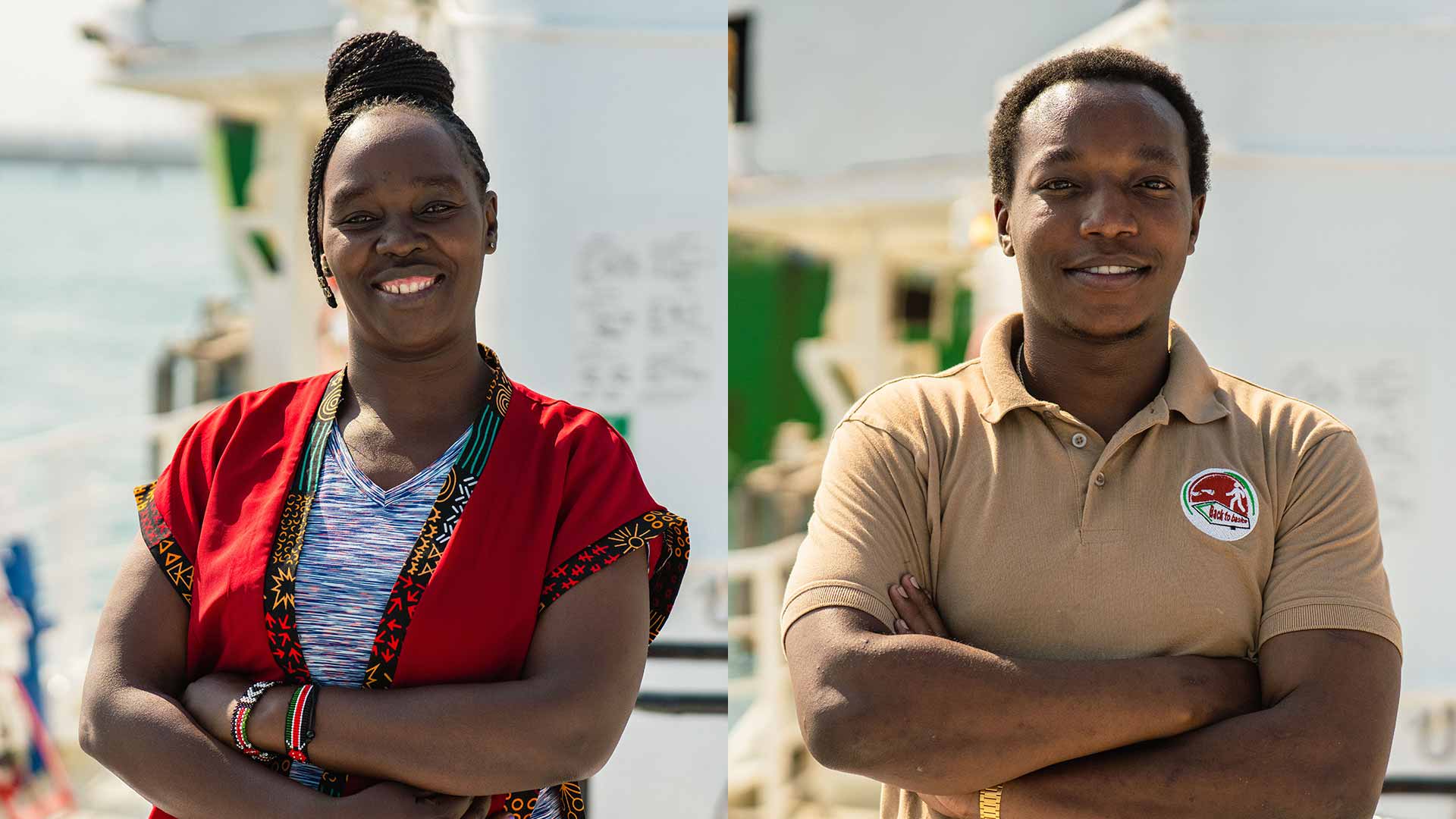
Edward “Eddy” Karanja – Back to Basics Kenya & Teresa Muthoni – Women’s Earth Alliance
In Nairobi, the initiative Back to Basics, represented by Edward “Eddy” Karanja, and supported by Women’s Earth Alliance (WEA), represented by Teresa Muthoni, advocates for greater recognition of waste pickers, who are often marginalized and locally referred to as chokaraz. Their work places particular emphasis on the role of women in this sector: they make up the majority of the workforce in sorting and collection—the most strenuous and hazardous jobs—yet remain largely absent from decision-making and management roles. The vision defended by Eddy and Teresa is clear: empowering women means strengthening entire communities.
With the support of Plastic Odyssey Factories, L’Oréal Paris, and L’Oréal East Africa, a community recycling center is currently being developed in Nairobi. The land has already been secured in a peri-urban area and will be equipped with a Plastic Odyssey micro-factory in early 2026. This site will serve both as a recycling micro-factory and a training space. Plastics will be purchased from waste pickers at fair prices, transformed into marketable products, and used as teaching material to help women launch their own local recycling initiatives.
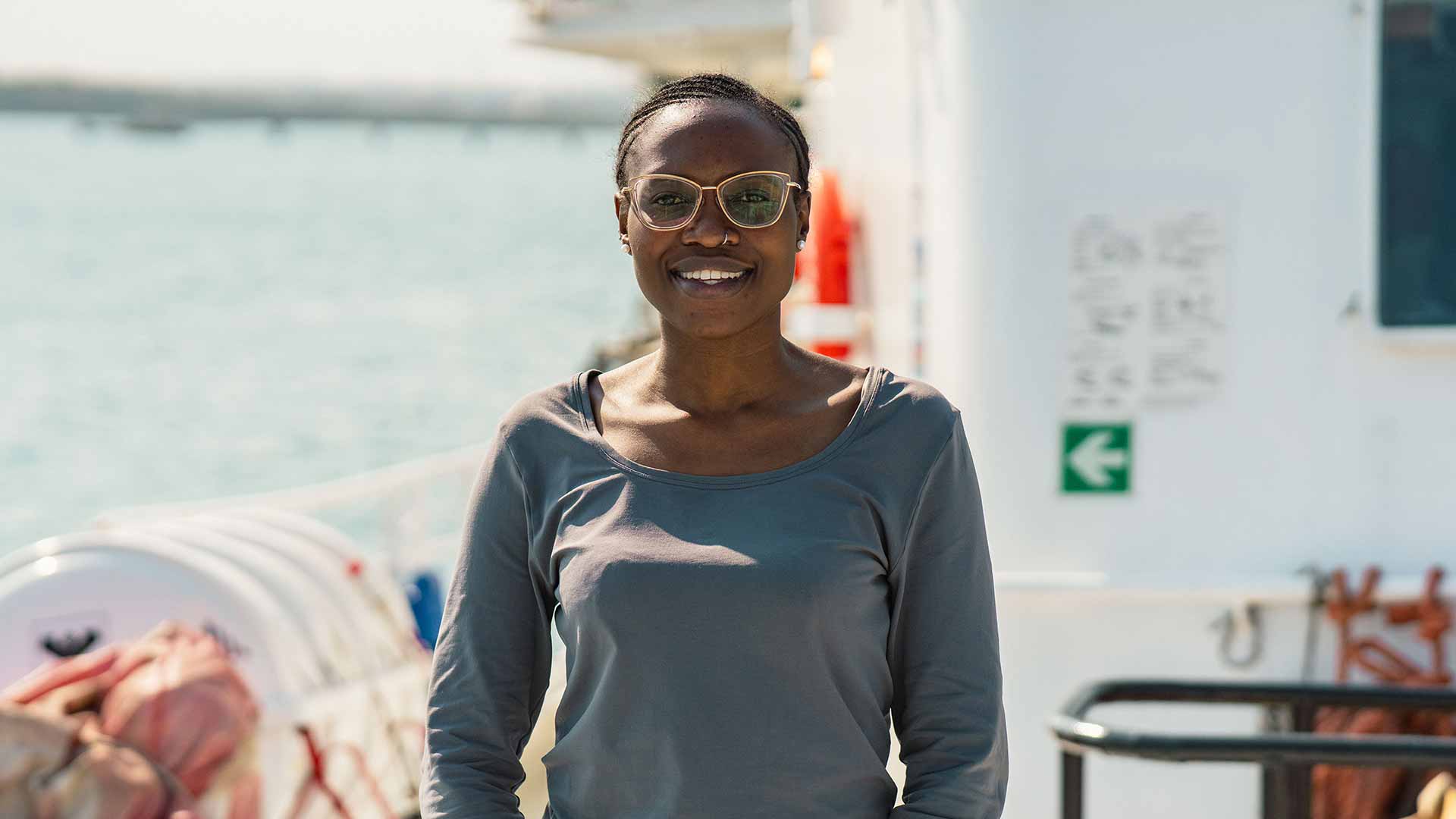
Poulette Frac – Wapole Kijee
In Nairobi, Poulette founded a community-based organization in 2023 that began with door-to-door collection in surrounding neighborhoods. This initiative, led by a team of volunteers, not only helped reduce the accumulation of waste in the streets but also provided direct income to families participating in the collection.
In 2024, the organization reached a major milestone with the creation of a buy-back center. This centralized facility operates as a drop-off point where residents and street collectors can bring their rigid, flexible, or PET plastics, remunerated at a fixed price. The waste is then sorted and resold to local recyclers and export players.
Beyond the economic dimension, Poulette wanted to embed a strong social component, focusing particularly on children and women waste pickers, who are often in an even more precarious position. The goal, for example, is to develop upcycling activities for children to keep them away from waste picking—creatively transforming collected plastics into useful or decorative items. Through this approach, Poulette’s organization combines waste management, social inclusion, and local value creation, while raising community awareness about the importance of sorting and reducing plastics.
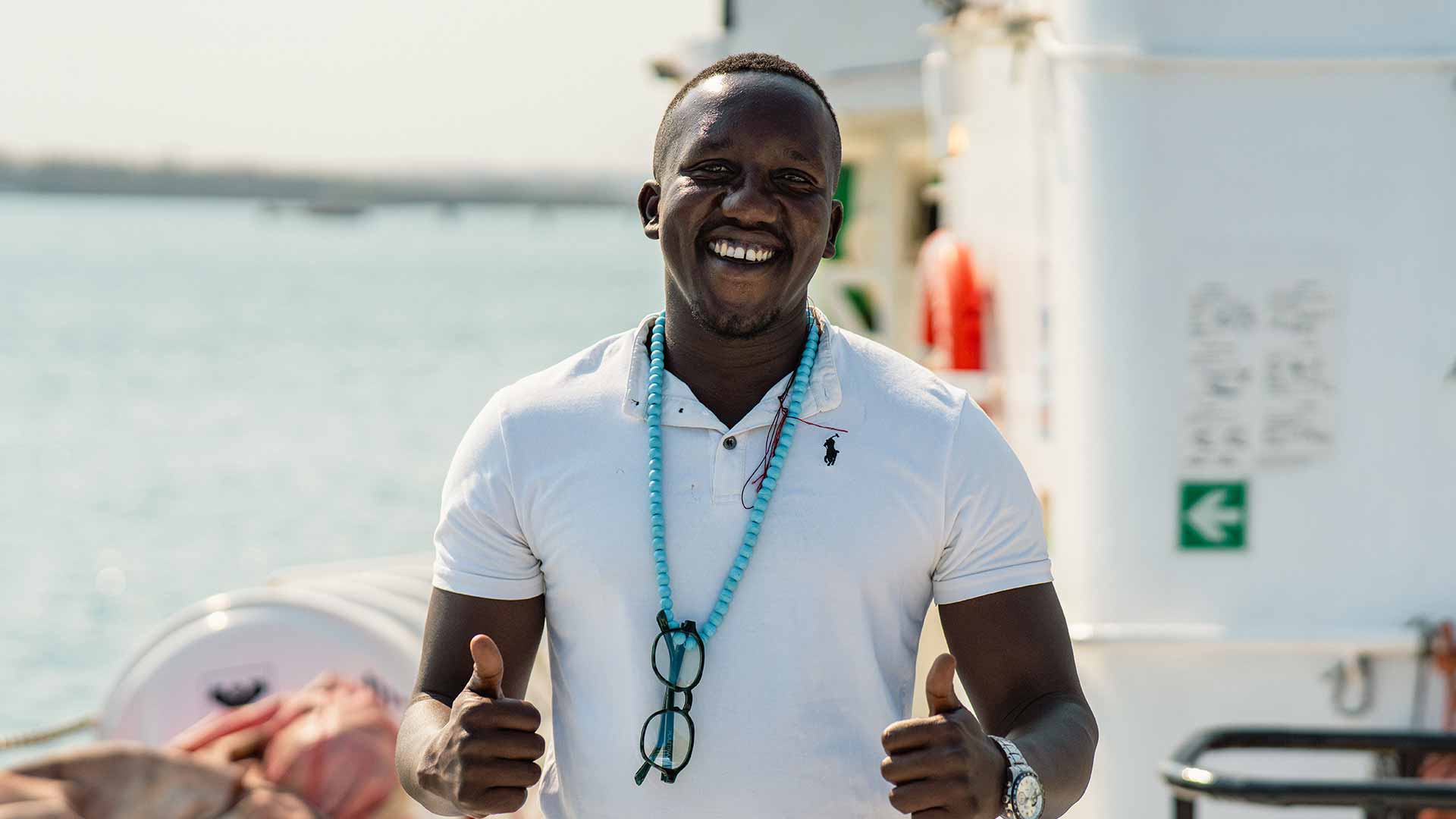
Sam Mburu – Dandora Green
Launched in 2020, Dandora Green operates directly at East Africa’s largest dumpsite, in Dandora on the outskirts of Nairobi. The organization began with informal collection activities before gradually evolving into a more structured model. Today, it functions as a Material Recovery Facility (MRF) with a team of ten people and a buy-back center.
Every month, Dandora Green purchases around 40 tons of plastic waste, largely thermoformed polypropylene (PP) from single-use food packaging, which they sort and resell to local recyclers.
Beyond its waste management activities, the initiative stands out for its strong social and educational roots:
- planting 5,000 trees in surrounding neighborhoods,
- organizing activities for community children,
- and hosting a unique weekly event—the “tea party”—which combines shared meals with awareness-raising on sorting and environmental protection.
Led by Sam, the project has no plans to stop there. The ambition is to acquire processing machines to manufacture recycled plastic pavers or planks locally, in order to capture more added value.
Dandora Green has also developed its own traceability app, which documents the origin of collected and purchased plastics. In the long term, Sam hopes this innovation will enable them to integrate into the Extended Producer Responsibility (EPR) system, providing unique visibility and transparency across the recycled materials supply chain.
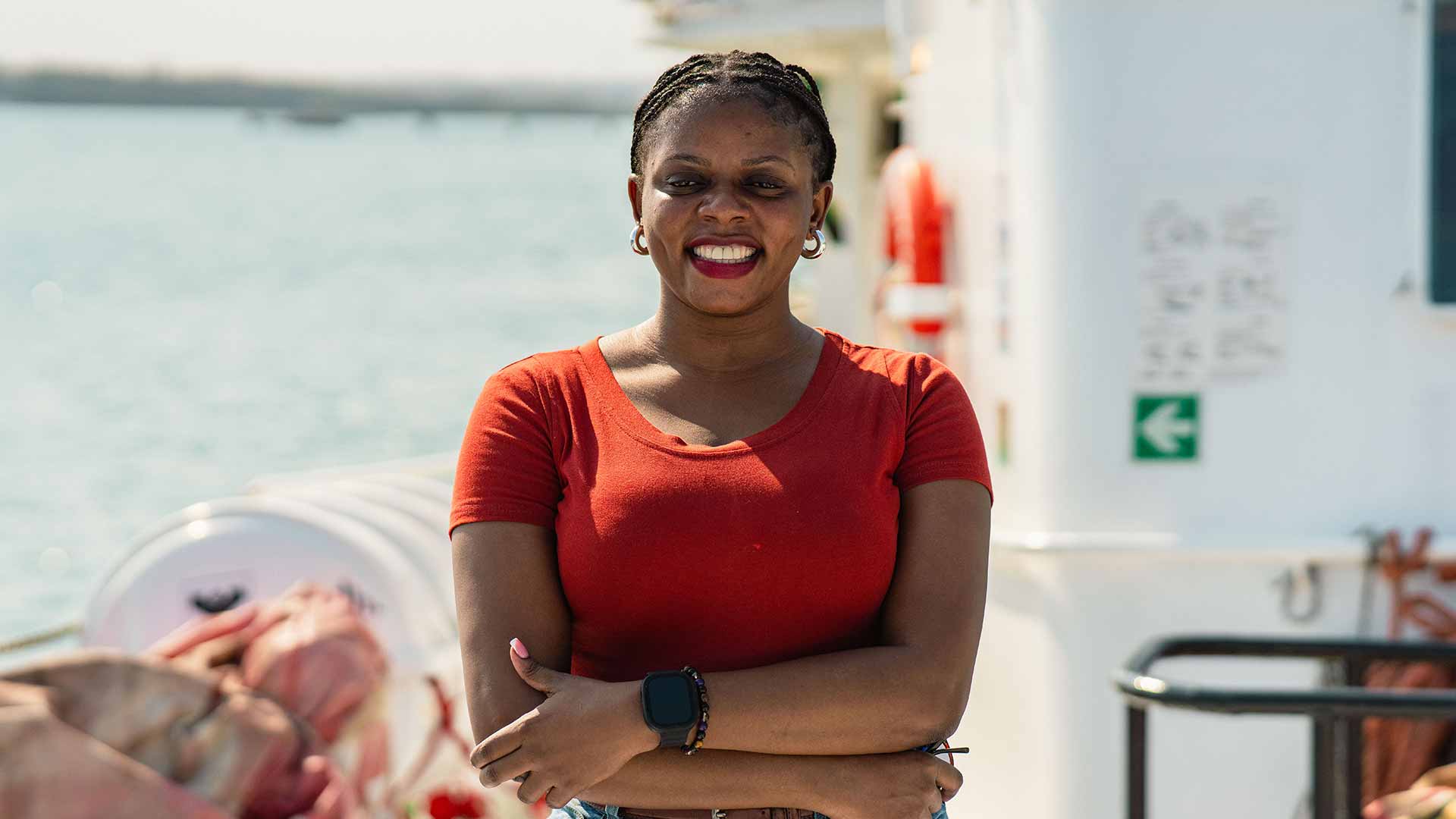
Irene Nyangasi – Taka Track
A software engineer, Irene also works with the United Nations on environmental issues. She develops digital solutions, particularly around PET bottle traceability and monitoring discussions on the global plastics treaty.
To further anchor the program in the local ecosystem, we invited Kate Krukiel, COO of Ocean Sole, and James Odongo, CEO of the Kenya Extended Producer Responsibility Organization (KEPRO), to share their journeys and experiences.
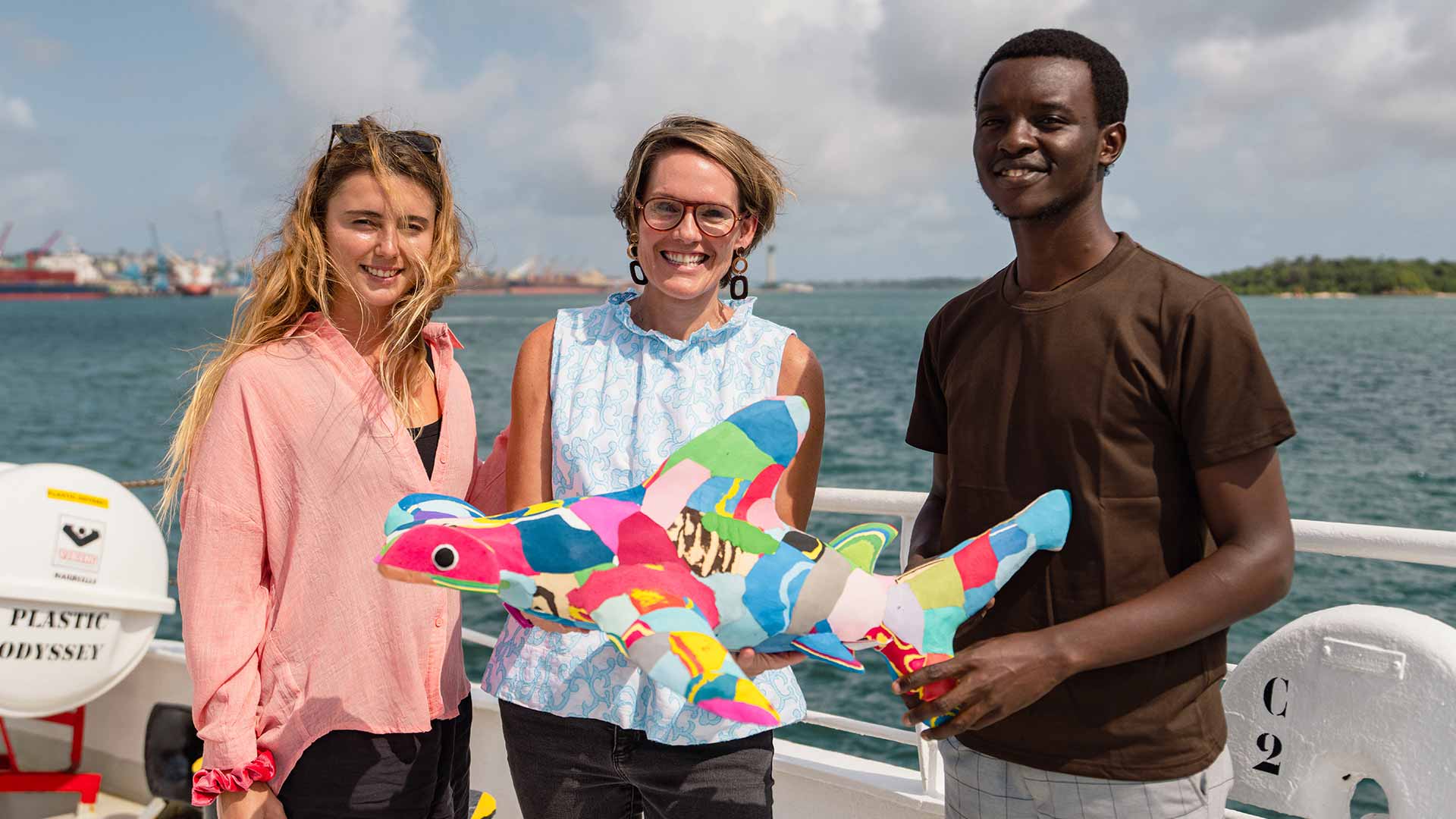
Ocean Sole
Since 2006, Ocean Sole has been giving a second life to flip-flops washed up on Kenya’s beaches by transforming them into decorative objects and monumental sculptures. The organization operates on a hybrid model: an NGO in charge of collection and awareness-raising along the coast, and an upcycling company based in Nairobi, where about twenty artisans—former carpenters and sculptors—practice their craft.
In nearly twenty years, the impact has been impressive: more than 638 tons of flip-flops have already been upcycled, including 60 tons in 2025 alone.
Ocean Sole’s activities revolve around three complementary areas. The first is collections: recovered flip-flops are washed, glued, cut, and then sculpted into small colorful animals—lions, giraffes, or sharks—sold in safari parks, hotels, zoos, and other tourist establishments. These creations alone account for nearly 60% of revenue, driven largely by distributors.
The second area is the studio, which designs monumental pieces for exhibitions and events. Life-size whales and giraffes take shape from expanded polystyrene and thousands of discarded flip-flops. These works have also led to collaborations with major international brands. For instance, Chloé launched a capsule collection of shoes combining sustainable fashion with social impact; Rubis Kenya supported artistic installations showcasing waste reuse; and Honda commissioned a giant sculpture—a blue whale made from 4,500 flip-flops and 154 kilos of polystyrene—installed at KAUST University in Saudi Arabia. In Vancouver, five life-size Canadian animals, created from 6,579 flip-flops, headlined the Waste to Wonder exhibition.
Finally, social and environmental impact lies at the heart of the mission. Sourcing raw materials is not a barrier to activity: around 20–30% of flip-flops come directly from clean-ups organized by Ocean Sole, while the rest are purchased from other local initiatives at 30 KES per kilo (about 0.23 USD). The company also emphasizes education and awareness, notably through creative workshops for children in Nairobi, offered at 750 KES (about 5.75 USD).
Today, Ocean Sole stands out as a unique global initiative, combining local craftsmanship, circular economy, and environmental awareness. By transforming an emblematic ocean waste, the organization manages to inspire, educate, and create both social and economic value.
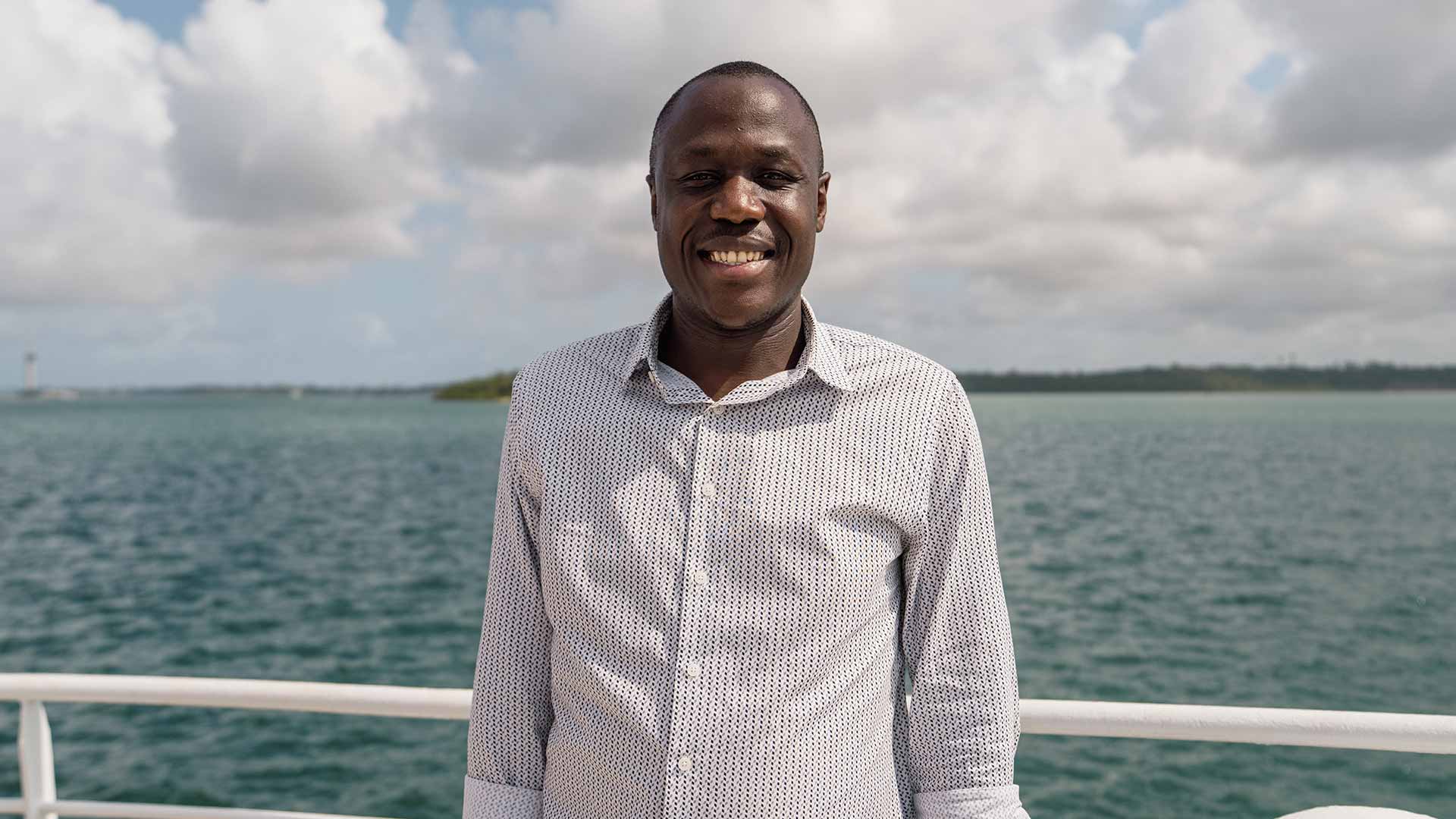
James Odongo – KEPRO
Founded in 2021, the Kenya Extended Producer Responsibility Organization (KEPRO) has the mission of structuring the implementation of Extended Producer Responsibility (EPR) in the country. It brings together several major companies in the food, retail, and consumer goods sectors to develop a collective approach to waste management.
Under the leadership of James Odongo, KEPRO is working to establish an operational framework aimed at:
- organizing and financing the collection, sorting, and recycling of post-consumer waste,
- ensuring traceability of material flows,
- developing local value chains,
- and guaranteeing that member companies meet their legal and environmental obligations.
Still young, KEPRO is gradually striving to position itself as a key player in Kenya’s waste management and, more broadly, in the circular economy, by fostering dialogue between the private sector, civil society, and public authorities.
Creating sustainable models that combine social and environmental impact
This Kenyan edition of the OnBoard Laboratory highlighted the richness and diversity of local initiatives: digital applications, transformation workshops, community projects, social inclusion programs… In a country where informal collection plays a key role, these entrepreneurs are striving to create sustainable models that combine social and environmental impact with economic opportunities.
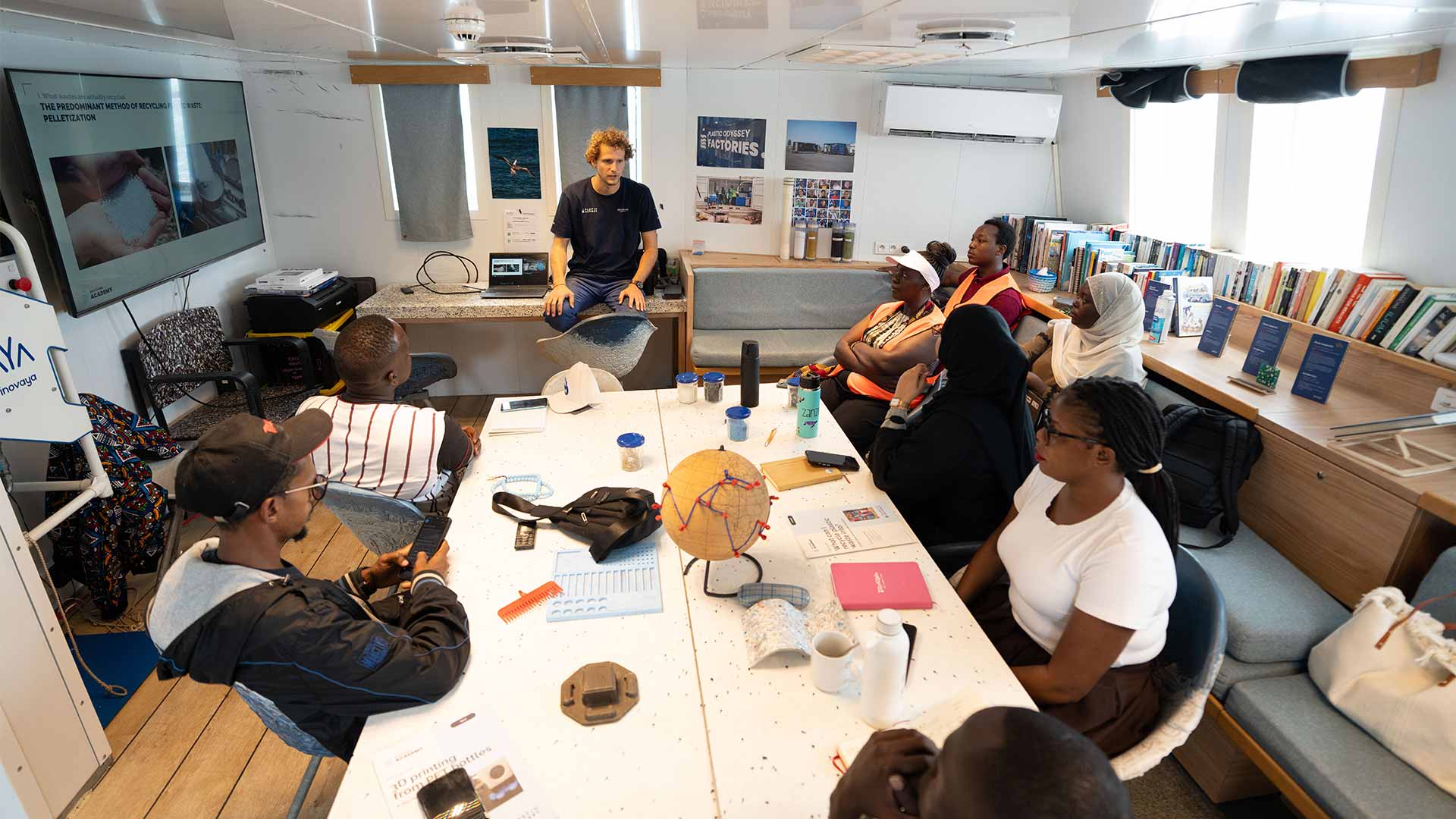

OnBoard Laboratory, our incubation program for recycling entrepreneurs
At each stopover on the expedition, the Plastic Odyssey vessel welcomes on board several local recycling entrepreneurs to exchange ideas and develop concrete solutions to combat plastic pollution.

